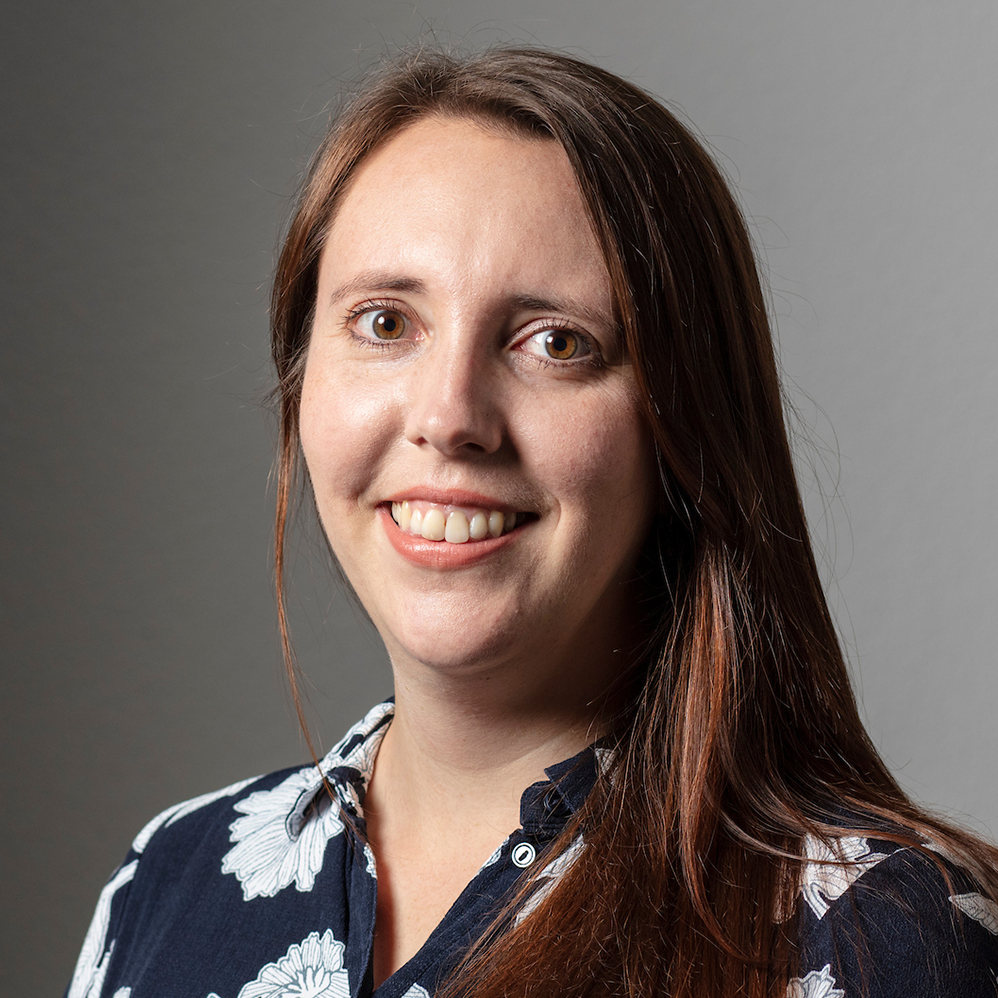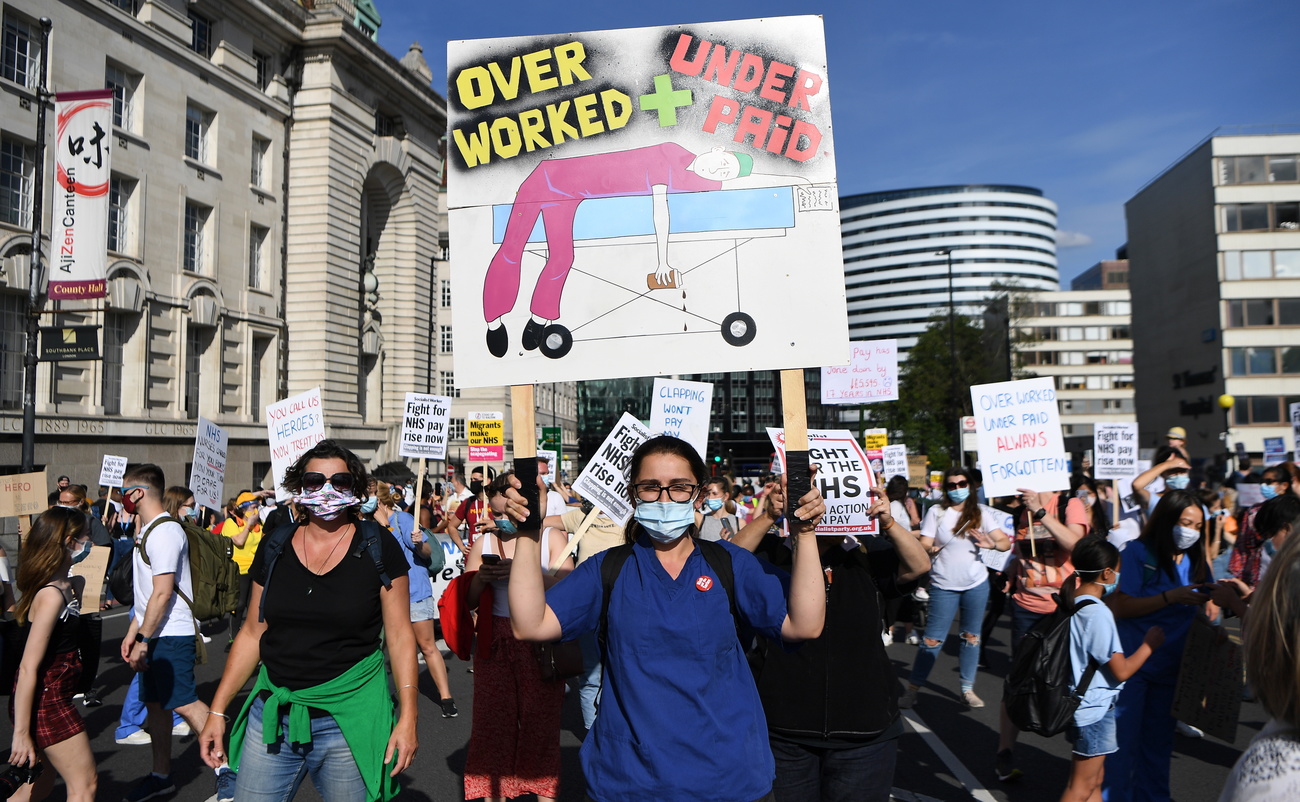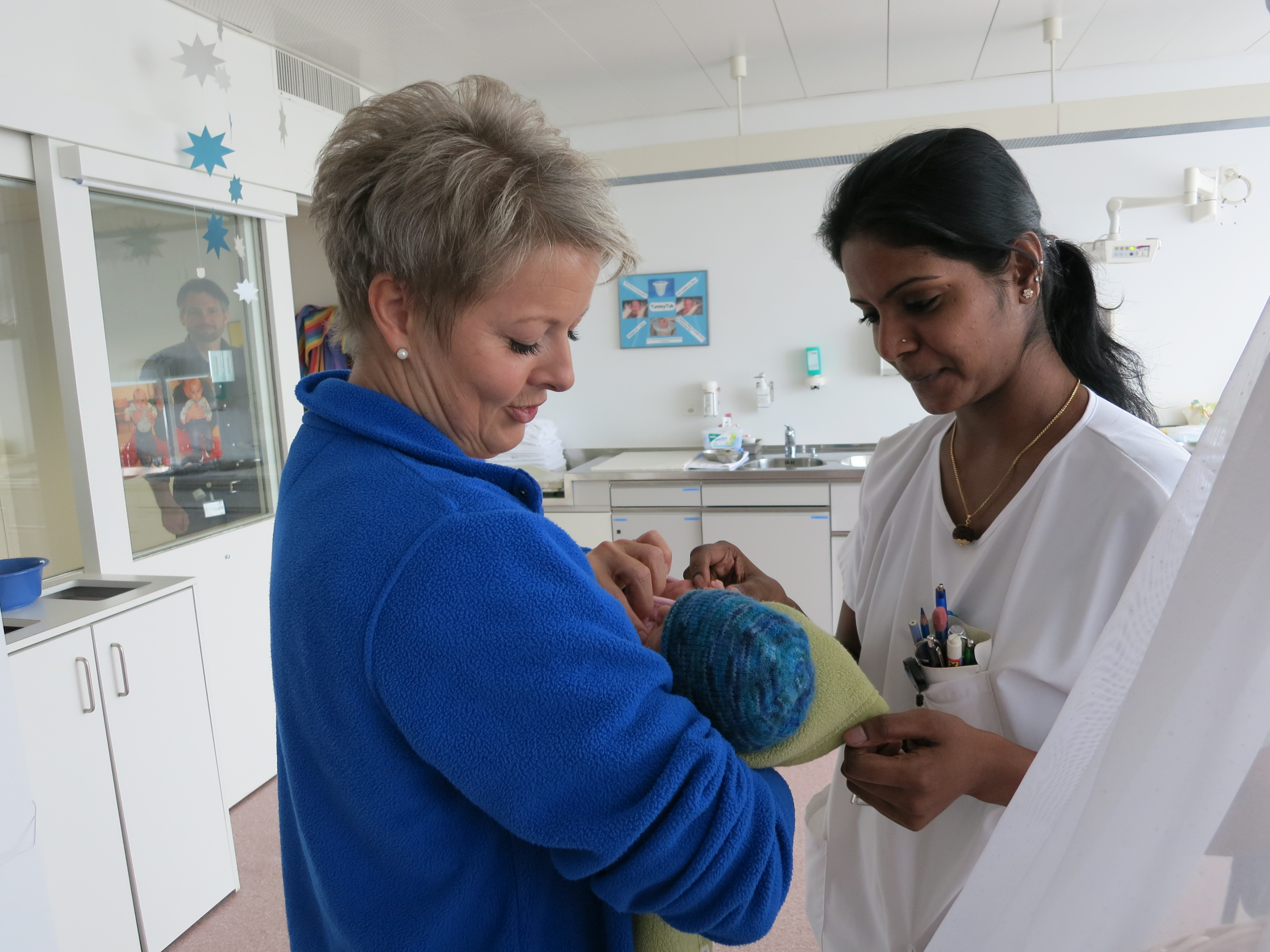スイスの看護師不足、ベストな解決手段は?
新型コロナウイルスの流行は、スイスでかねて問題視されていた医療従事者の厳しい労働環境を改めて浮き彫りにしました。ロックダウン(都市封鎖)中には医療従事者を称えて毎晩バルコニーから応援の拍手が送られましたが、実質的な改善を求め、看護師たちが問題解決への行動を求めています。
2021年11月28日に、スイス看護師協会が提起した「看護師イニシアチブ」が国民投票にかけられます。イニシアチブの提案内容に対してはスイス連邦議会が対案を出しており、政治家や医療関係者の意見は割れています。
こちらの記事ではイニシアチブと対案の違いを詳しく解説。あなたはどちらの案が優れていると思いますか?その理由は?
スイスの医療機関で働いている方は、従業員不足や過剰労働、バーンアウトなどの経験があれば教えてください。
スイス以外の国にお住いの方は、自国の看護師の労働環境について教えてください。
家族を一時的に看護師として、政府が報酬を払う。
本当の看護師が家族にアドバイスすることで、負担を減らす。
どうしても対処できなくなった場合、本当の看護師が対応する。
看護師の報酬を高くしても過酷な労働では、看護師を増やすことにはならない。
ワクチンを接種できない看護師には、迅速な抗原検査を提供することが望ましいでしょう。
It may be advisable to offer rapid antigen testing for those nurses unable to be vaccinated.
この問題の一部は、おそらく人口動態にあると思います。要介護高齢者が相対的に多く、年齢ツリーや逆さの年齢ピラミッドのために労働力として参入する若者が相対的に少ないのです。
他国で介護士を募集して、良い給料でここに呼び寄せようとするかもしれない。オーストリアにはパンデミック患者のための約2^000の集中治療ベッドがあり、スイスには賃金が高いにもかかわらず、あるいは高いからかもしれませんが、900の集中治療ベッドしか用意できないことを比較すれば、これは明らかにうまくいきません。どうやら、優秀な人材にとっては、高い賃金よりも、慣れ親しんだ誠実な環境の方が重要なようだ。
長期的に年齢ピラミッドを是正するためには、出生率を2.1という健全な水準まで高める必要がある。そして、残念ながら多くの女性は子供がいないか、1人か2人しかいないので、社会も経済も政治も4人以上の子供を持つ家族政策を目指すべきです。ですから、すべての女性が好き好んで4人以上の子供を産み、男性が逃げずに女性を支えるような社会にするには、どうしたらいいのでしょうか。
また、NRアンドレア・ガイスビュラーとNRイヴェット・エステルマンのイニシアチブを支持するためには、女性も予定外の子供を産みたいと思うような社会にしなければなりません。
Ein Teil des Problems liegt wohl in der Demografie; es gibt bedingt durch den Alters-Baum beziehungsweise der auf den Kopf stehenden Alterspyramide relativ viele alte Menschen welche Pflege bedürfen und relativ wenige junge Menschen welche ins Berufsleben eintreten.
Man mag hingehen und nun versuchen Pflegefachkräfte in anderen Länder zu rekrutieren und mit einem guten Lohn hier her zu locken. Nur funktioniert dies offensichtlich nicht, wenn man vergleicht dass Österreich rund 2^000 Intensivbetten für Pandemie-Patienten hat und die Schweiz trotz oder vielleicht gerade wegen den hohen Löhnen sich nur run 900 Intensivbetten leisten kann. Guten Leuten ist scheinbar ein vertrautes ehrliches Umfeld wichtiger als ein hoher Lohn.
Um die Alterspyramide langfristig zu korrigieren müsste die Geburtenrate auf ein gesundes Niveau von 2.1 erhöht werden. Und da leider viele Frauen keine oder nur 1, 2 Kinder haben müsste die Gesellschaft, die Wirtschaft und Politik eine 4+ Kind Familienpolitik anstreben. Daher, wie müsste eine Gesellschaft sein damit jede Frau es liebt vier und mehr eigene Kinder zu haben und die Männer nicht davon laufen, sondern die Frauen unterstützen?
Oder um die Initiative von NR Andrea Geissbühler und NR Yvette Estermann zu unterstützen; wie müsste die Gesellschaft sein damit Frauen auch gerne ungeplante Kinder haben?
外国人看護師とスイス人看護師の両方を惹きつけ、定着させる方法の一つは、より明確に定義されたキャリア構造、魅力的な社会的給付、雇用保障の提供、さらには、異なる臨床、研究、管理分野への移動、国内の病院、診療所、その他の医療施設間の移動が可能であることです。また、看護師は、大学院でのトレーニング、継続的な専門能力の開発、より幅広い専門分野に進出する機会を求めています。
スイス国外からの看護師は短期滞在者とみなされることが多いため、こうした機会は限られています。 過去に行われた研究では、仕事の満足度は給与だけではなく、主要な動機でもないことが示されています。
One way of attracting and retaining both foreign and Swiss nursing staff lies in the provision of a more clearly defined career structure, attractive social benefits and job security as well as a greater facility to move to different clinical, research and administrative areas and also between hospitals, clinics and other healthcare facilities throughout the country. Nurses also value post graduate training, continuous professional development and further opportunities to branch out into a wider variety of specialisms.
Nurses from outside Switzerland are often considered as short term which limits these opportunities. A body of research literature in the past has shown that pay is not the only, and often not the prime motivator, in job satisfaction.
このような柔軟性があれば、この職業はもっと魅力的なものになると思います。そして、給与の問題を超えて考えることが重要です。投票後、どのような展開になるのか、とても楽しみです。皆さんの丁寧なご意見、本当にありがとうございました。
I agree, this kind of flexibility would make the profession a lot more attractive. And that thinking beyond the issue of the salary is vital. I'm really curious to see how things develop now after the vote! I really appreciate your thoughtful inputs, thank you.
看護師のキャリアは、ほぼ無限の可能性を秘めており、常に理論的には有望であった。しかし、実際には多くの障害を乗り越えなければならず、どの国でも、また世界的に見ても労働力の規模は大きく、専門性、献身、高等教育、訓練、そして大多数のメンバーの絶対的な献身にもかかわらず、この職業は職場、政治的、その他の面であまりにも影響力が小さいのが実情です。医療に比べれば、シンデレラ的な存在です。
ちなみに、宣伝してはいけないのですが、ハンドジェルと世界的に高く評価されている手洗い技術がどのように生まれたかを語る「クリーンハンズ」という短い感動的な本をぜひ手にしてみてください。この本は私の病棟で始まり、私は知らず知らずのうちに、より懐疑的なモルモットの一人になっていたのです! :-)
このビデオの最後にあるダンスが創始者です。
https://www.youtube.com/watch?v=5qWM9JyVUQ4
A career in nursing has almost unlimited potential and has always been so full of promise in theory. Sadly in practice it has to overcome so many different obstacles and despite the size of the workforce in any country and globally, the professionalism, dedication, higher education and training and the absolute dedication of the majority of its members, the profession has far too little influence both in the workplace, politically and elsewhere. It remains the Cinderella service by comparison with the medical profession.
Incidentally, I shouldn’t advertise, but do try and get a copy of the short inspirational book called clean hands which tells the story of how hand gel and the global acclaimed hand washing technique came into being. It started on my ward where I was unwittingly potentially included among one of the more sceptical Guinea pigs! :-)
The founder is in the dance at the end of this video
https://www.youtube.com/watch?v=5qWM9JyVUQ4
私が前のコメントで紹介した本は、他の言語、ドイツ語やフランス語でも出版されています。詳細を知りたい方がいらっしゃれば、お伝えします。
The book I mention in my previous comment is also published in other languages, German and I believe French. I can give further details if anyone would like them.
とても興味深いです!是非とも拝見させていただきます。ありがとうございました!
Very interesting! I will definitely have a look! Thank you!
簡単です。もっと払ってください。
Simple. Pay them more.
すべての看護師は、インドとフィリピンで英語を話す、よく教育され、スイスで私たちのために大きな助けになる可能性があります。私は住む場所と良い給料を管理することは、スイスで一時的に動作するように彼らのために興味深いものになると信じています。
All nurses speaking English in India and Philippine, well Educated and Could be great help for us in Switzerland.I believe managing place to live and a good salary will be interesting for them to work temporarily in Switzerland.
看護師は患者さんと接する機会の多い最前線のスタッフであり、その多くは英語を話せませんから、それではうまくいきません。
医療現場で患者さんと明確にコミュニケーションが取れないと、大事なことが「訳がわからなくなる」という悲劇を招きかねません。
That won’t work as nurses are frontline public facing staff with extensive contact with patients, many of who don’t speak English.
The inability to clearly communicate with patients in a healthcare setting could lead to tragic mistakes because of important things becoming “lost in translation”.
ここで疑問が生じる。彼らは、自分たちの価値観に基づいて、スイスに彼らがいることを全く望んでいないのだろうか?
Hier stellt sich die Frage; will man die überhaupt in der Schweiz auf Grund ihrer Wertehaltung?
湾岸諸国と世界の多くの国で同じシステムを採用することをお勧めします。つまり、フィリピンやインドなどの国から看護師を雇い、季節ごとの就労ビザを提供します。
أنا أقترح أن نعتمد نفس النظام في دول الخليج وفي كثير من دول العالم، أي أن نقوم بتوظيف ممرضات من دول مثل الفلبين و الهند ونوفر لهن تأشيرات عمل موسمية لأننا لا نعرف كم عدد الفيروسات التي ستصل إلينا في المستقبل!
ご回答ありがとうございました。これは興味深い点です。言語面ではどうなのでしょうか?看護師はビザで無料の語学コースを受けることができるのでしょうか?
Thank you for your answer. This is an interesting point. How does that work language wise? Do the nurses get a free language course with the visa?
看護師は、フランス語、ドイツ語、イタリア語など、現地の言語で患者さんとコミュニケーションをとることが必要です。それができないと、患者さんや医師の話がよく理解できず、悲惨なミスにつながってしまうからです。
Nurses need to be able to communicate with their patients in the local language, be it French, German or Italian. Not being able to do so would lead to tragic mistakes due to a failure to clearly understand patients or doctors.
まずはフランスとドイツで導入すべきかもしれませんね。看護師や医師はすべて外国から来た人で、現地の人ではない。
Das sollte man vielleicht zuerst einmal in Frankreich und Deutschland einführen: Alle Krankenschwestern und Ärzte kommen aus anderen Länder und sind keine Einheimische.
共通言語も一つです。同じ言葉を理解し、同じ価値観を持つことで、誤解を少なくすることができるのではないでしょうか?
例えばスイスでは、「すぐ行く」という発言は、大きなカントン(州)とは違う重みを持つ。最近、州病院のスイス人看護師が、患者に対する「客員」医師の態度について不満を漏らしたり、「スイス人医師を増やすために医学を勉強してほしい」と言ったりしたのは、驚くにはあたらない。
Die gemeinsame Sprache ist das eine. Wäre es nicht gut wenn man unter dem selben Wörter das selbe versteht und das selbe Wertesystem hat um Missverständnisse zu minimieren?
In der Schweiz hat zum Beispiel die Aussage "ich komme gleich" ein anderes Gewicht als im grossen Kanton. Und so ist es nicht verwunderlich, dass kürzlich einer schweizer Krankenschwester im Kantonsspital die Nerven blank lagen und sie sich über das Verhalten mancher "Gast"-Ärzte bei einem Patient beschwerte bzw. aufforderte Medizin zu studieren damit es mehr schweizer Ärzte gibt!
一番良い方法は、給与水準を3倍にして、これらの人々の賃金を削ることをやめることです。昇給は、ペイパービューで政治家を鞭打つことで可能になる。
The best way is to triple the pay scale and stop trying to chisel these people down in wages. Pay raises can be made by flogging politicians on Pay- per-View.
幸いなことに、スイスでは鞭打ちはもう行われていないのですこのコメントは面白い意味で言ったのだと思うにしても、 [url=https://www.swissinfo.ch/eng/terms-of-use/44141966]ガイドライン[/url] を守って、コメントで暴力を呼びかけるのはやめてほしいです。
医療従事者の賃金はどのくらいが妥当だと思いますか?
Luckily flogging isn't something that happens in Switzerland anymore! Even though I think this comment was meant in a funny way, please adhere to our [url=https://www.swissinfo.ch/eng/terms-of-use/44141966]guidelines[/url] and don't call for violence in your comments.
What wage do you think would be reasonable for health care staff?
このような看護師不足を解消するために、よく教育された看護師を迅速に提供します。
少なくとも5年の実務経験を持つ、ヨーロッパの他の国から。ドイツ語、フランス語、英語を話す。
スイスは世界で最も優れた医療を提供している国の一つです。
シンガポールやアメリカと並んで、スイスは世界最高の医療を提供しています。社会化された医療は崩壊しています。
To cure this shortfall of nurses quick, offer well educated nurses
with at least 5 years working experience from, other countries in Europe. German, French and English speaking.
Switzerland has one of the best healthcare in the world, beside
Singapore and the USA. The socialised healthcare is in collapse.
アメリカでは、インスリンのような命を救う薬を買えないために、どれだけの人が亡くなっているか知っていますか?また、アメリカでは医療破産が個人破産の主な原因の一つになっています。それが、あなたがスイスに真似してほしい医療ですか?
Do you know how many people die in the USA because they can’t afford life saving drugs like insulin? Medical bankruptcies are also one of the leading causes of personal bankruptcies in the USA. Is that the healthcare you want Switzerland to copy?
スイスは医療が充実しており、アメリカはおそらく最高である。スウェーデンは社会主義的な医療制度が機能していましたが、現在は崩壊しており、お金を払う必要はありませんが、ほとんどの人が利用できません。
Switzerland has good healthcare, USA probably the best, even if its not available to everybody. Sweden who used to have a working socialistic healthcare system has now collapsed, you do not need to pay, however, its not available to most people.
あなたはアメリカが「最高の医療制度」を持っていると言い続けているが、アメリカではインスリンを買えないために定期的に人が死んでいる事実や、医療費による破産がアメリカの個人破産の最大の理由の1つであることには答えていない。
あなたはスウェーデンの医療制度が「崩壊した」と主張するが、その例を一つも挙げることができない。そこで薬を買えずに死んだり、医療費で破産したりする人がいるのでしょうか?私は違うと思います。
明らかに事実の裏付けがない主張をするのはやめましょう。
You keep saying that the USA has the “best health care system” yet haven’t responded to the fact that people regularly die in the USA because they can’t afford insulin or that bankruptcies due to medical bills are one of the biggest reasons for personal bankruptcies in the USA.
You claim Sweden’s healthcare system has “collapsed” yet can’t provide a single example. Are people there dying because they can’t afford medicines or going bankrupt because of medical bills? I think not.
Don’t make claims you obviously can’t back up with facts.
私はスウェーデン人で、この状況を直接知っています。
医療を待っている人たちが死んでいるんです、しかも透明性がない。
看護師、医師、病院のスペースが不足しているのです。
アメリカでは、人々はタバコ、アルコール、車、乳製品などの享楽にお金を使っています。肥満は最悪の死因の1つです。
社会主義国では、統計は政府を救うために捏造されています。私は医者の友人、病気の親戚、友人を持っています。
状況は最悪だ。医療費はどこも高い。
医療費は税金や保険で賄われている。アメリカは最も優れた医学教育を持っている。
Hey, I am Swedish, I know the situation first hand.
People die waiting for medical care, and its not transparent.
There is a shortage of nurses, doctors, space at hospitals.
In the USA people spend money on pleasures, tobacco, alkohol, cars juls food etc. and yes people die there because of money problem, exactly like the rest of the world. Obesity is one of the worst killers.
In socialistic countries statistics are fake, just to save the governments. I have doctor friends, sick relatives and friends
the situation is terrible. Medical care is expensive everywhere
paid by taxes or insurance. USA has the best medical education.
お二人とも、ご投稿ありがとうございます。この議論のトピックに戻るために:それは看護の危機を解決するために来るとき、スイスはアメリカやスウェーデンから学ぶことができるものがありますか?url=https://www.swissinfo.ch/eng/swiss-voters-set-to-give-helping-hand-to-nurses/47130266]看護師 イニシアチブ[/url] が受理されたことで、どうなると思いますか?
Hi both, thank you for your contributions. To come back to the topic of the discussion: are there things Switzerland could learn from the US or Sweden when it comes to solve the nursing crisis? What do you think will happen now that the [url=https://www.swissinfo.ch/eng/swiss-voters-set-to-give-helping-hand-to-nurses/47130266]nursing initiative has been accepted[/url]?
スイスの看護師の給与がEUの平均を下回っているという記事が最近ウェブサイトに掲載されていましたが、ご質問にお答えすると、看護師の給与を上げることは大きな前進となるでしょう。
看護師は、フランス語、ドイツ語、イタリア語など、現地の言語で患者や医師と明確にコミュニケーションをとる必要があるからです。英語しか話せない看護師では、誤訳のために患者の命にかかわるリスクが大きすぎるからだ。
To respond to your question, paying nurses more would be a huge step forward as your website recently had a story about how Switzerland’s nurse’s pay is below the EU average.
Some people have recommended bringing in additional nurses from India or the Philippines which is unwise as nurses need to be able to clearly communicate with their patients and doctors in the local language, be it French, German, Italian, etc. The risk to patient lives because of mistranslation would be too great with nurses who could only speak English as would be the case with bringing in nurses from the countries I mentioned above.
ありがとうございました。投票後、これからどのような展開になるのか興味津々です。そして、より高い賃金を支払うことは、確かに良いスタートです
私は看護師として働くとき、地元の言語の能力が不可欠であることに同意します。医療現場で働くことに特化した[url=https://www.srk-zuerich.ch/lernen/pflege-betreuung/deutsch-als-zweitsprache-in-der-pflege]語学講座[/url]があるので、海外から招聘する看護師も語学講座を通えば、解決策、あるいはその一部になるかもしれませんね。
Thank you! I am curious to see how things will unfold now after the vote. And paying higher wages is certainly a good start!
I agree that proficiency in the local language is vital when working as a nurse. There are [url=https://www.srk-zuerich.ch/lernen/pflege-betreuung/deutsch-als-zweitsprache-in-der-pflege]language courses[/url] specifically tailored to working in the medical field, so if nurses who would be invited from abroad would also go through language courses it might be a solution, or a part of a solution.
この取り組みは、多くの看護師が訓練を受ければ、看護師も増え、不足が解消されるという仮定に基づいています。
しかし、一部の看護団体は、訓練された看護師ではなく、4年間の実習を経て「単純に」訓練された医療従事者のみを雇用したいと考えていると言われています。これはある意味、賃金の支払いが少なくて済むという意味でもあります。医療従事者が時間に追われないように雇用を増やせば、看護師不足はある意味解消されるだろう。というのは癪に障ります。このようにして節約したお金がどこかで無駄になっているのか、あるいはコストに根本的な問題があり、自治体やカントンなど価格カタログを決める人がもっと懐に入れなければならないのか。
とはいえ、この構想が採用され、実施されると、優秀な看護師が養成されても、賃金が高いために就職できないという危険性が高いのではないでしょうか。結局のところ、看護の専門家は失業しているために不満を感じており、研修の集中化と現在のアカデミー化により、ヌメロ・クラウサスになぞらえて、一般的な不満が増大しているのです。また、看護師の危機は解決していません。
その一方で、「Yes」という言葉は、システムに何か問題があるという無言の抗議のようなシグナルを送ることになります。
Die Initiative setzt darauf, dass wenn mehr Pflegefachpersonen ausgebildet werden es auch auch mehr Pflegefachkräfte geben und der Notstand behoben wird.
Nur, manche Pflegeorganisationen wollen angeblich keine ausgebildete Pflegefachkräfte anstellen sondern nur "einfach" ausgebildete Fachfrau Gesundheit mit einer vierjährigen Lehre. Dies hat auf eine Art auch Sinn da man so weniger Lohn bezahlen muss. Wenn dafür mehr Fachfrauen Gesundheit angestellt würden, so dass diese keinen Zeitdruck hätten, wäre der Pflegenotstand auf eine Art gelöst. Irritierend ist, dass dies nicht der Fall ist. Entweder versickert das so eingesparte Geld irgend wo, oder man hat ein grundsätzliches Problem mit den Kosten und die Gemeinden, Kantone oder wer auch immer den Preis-Katalog fest legt müsste mal tiefer in die Taschen greifen.
Wie dem auch sei, mit der Annahme der Initiative und deren Umsetzung besteht das hohe Risiko, dass gute Pflegefachkräfte ausgebildet werde und diese dann auf Grund des höheren Lohnes aber keine Anstellung finden. So sind dann am Ende des Tages die Pflegefachkräfte frustriert weil sie arbeitslos sind und durch die Zentralisierung und heutige Form der Akademisierung der Ausbildung analog zum Numerus Clausus die allgemeine Unzufriedenheit zu nimmt. Und der Pflegenotstand ist nicht gelöst.
Auf der anderen Seite kann mit einem Ja zur Initiative ein Zeichen gesetzt werden wie bei einem stillen Protest dass da irgend etwas nicht stimmt im System.
医師や看護師のヒエラルキーを極力減らすことができればベストだと思います。
質を高く保つためには、診断と対策(ケアや処方)の立案を複数の責任者に分散させる必要があります。これは今日、技術的に実現可能なことである(例えば、インターネットのような技術的補助手段を用いて)。
また、専門家の高額な収入を減らすことも重要なポイントです。なぜなら、これは間違ったインセンティブを生み出すからです。
このように考えると、今回の看護師の取り組みは、長い道のりの第一歩と言えるでしょう。
Ich denke, es wäre am Besten, wenn die Hierarchie von Arzt:innen und Pflegenden möglichst stark vermindert werden könnte.
Um die Qualtität hochzuhalten, müsste die Diagnoseerhebung und die Planung von Masnahmen (Pflege oder medizinische Verordnungen) auf mehrere Köpfe verteilt werden. Das wäre heute technisch machbar (etwa mittels technischen Hilfsmitteln wie das Internet).
Ein wesentlicher Punkt müsste auch der Abbau von exorbitanten Einkommen von Fachärzten sein. Denn dadurch werden falsche Anreize gesetzt.
So gesehen wäre die Pflegeinitiative ein erster Schritt auf einem langen Weg.
その点については、私も同感です。私の経験では、どちらかというとフラットな階層のチームでは、交流が盛んで、互いへの信頼感も高く、職場の雰囲気も良くなります。しかし、私にとっては、給与や名声の収束も含めてのことです。そして何より、後者には社会全体のコミットメントが必要です。
具体的にどのように診断やプランニングをより多くの頭脳に分配すべきとお考えでしょうか?むしろ、「料理人が多すぎるとスープが腐る」と思っています。特に、多くの分野は専門性が高く、「自分の」臓器しか考えないことが多いので、全体像を把握する専門家が1人か2人いたら、どうなるのか興味深いですね。デジタル化は、データの一元的な収集に確かに役立ちます。
Da stimme ich Ihnen zu. In Teams mit eher flachen Hierarchien ist meiner Erfahrung nach der Austausch besser, das Vertrauen ineinander höher und das Arbeitsklima besser. Dazu gehört für mich allerdings auch eine Annährung in Gehalt und Ansehen. Vor allem letzteres braucht den Einsatz aller, gesamtgesellchaftlich.
Wie genau meinen Sie, dass die Diagnoseerhebung und Planung auf mehr Köpfe verteilt werden sollte? Ich würde eher denken "zu viele Köche verderben den Brei". Gerade auch dadurch, dass viele Fachrichtungen so hoch spezialisiert sind und häufig nur "ihr" Organ bedenken, fände ich es interessant zu sehen, wie es funktionieren würde, wenn es ein oder zwei Fachkräfte geben würde, die den Gesamtüberblick haben. Digitalisierung kann da sicher helfen mit einer zentralisierten Datenerhebung.
少なくとも四つの目の原則は導入すべきなのではないでしょうか。もちろん、これでも手が届くのかどうかが問題です。
また、お書きになったように、調整的な仕事も導入して、階層をフラット化することも有効だと思います。
また、収集されたデータは自動的に評価され、その結果、こちら側から自動的に検証される必要があること。
私は単純に、看護師はもっとクリエイティブな自由と発言権を持つべきだと考えています。
どのように実現すべきか。もちろん、これについては議論されることもあるし、されなければならない。
Ich vermute, dass mindestens das Vieraugenprinzip Einzug halten sollte. Natürlich stellt sich die Frage, ob das noch zahlbar ist.
Dass etwa, wie Sie geschrieben haben, auch koordinative Aufgabe eingeführt werden sollten, fände ich auch hilfreich, damit Hierarchien verflacht werden könnten.
Auch dass die erhobenen Daten automatische ausgewertet werden sollten und somit auch von dieser Seite automatisch validiert werden sollten.
Ich denke einfach, dass Pflegefachpersonen mehr Gestaltungsfreiraum und Mitspracherecht haben sollten.
Wie das erreicht werden sollte: Darüber kann und muss natürlich gestritten werden.
そうですね、四つの目の原則は確かに便利です。特に(これはよくあることですが)迅速でストレスの多い作業をしなければならないとき、同僚による「チェック」があればミスを避けることができます。
発言権や物事を形成する自由が中心であることは、私も同感です。週末の投票後、どうなるのか非常に気になるところです。何かが起こらなければならないという点では一致していると思いますが、どのような形でかはわかりません......。
Ja, ein Vieraugenprinzip ist definitiv hilfreich - besonders wenn es (und das ist häufig der Fall), schnell gehen muss und stressig ist kann ein "check" durch einen Kollegen oder eine Kollegin Fehler vermeiden.
Ich stimme Ihnen zu, dass Mitsprache und Gestaltungsfreiraum zentral ist. Ich bin sehr gespannt, was nach dem Abstimmungswochenende geschehen wird. Ich denke, es herrscht EInigkeit darüber, dass etwas geschehen muss, nur nicht, in welcher Form...
解決策は、基本的な医学の基礎を持っている大学、保健機関、ボランティアの学生にボランティアへの扉を開くことです。
الحل هو فتح باب التطوع لطلاب الكليات والمعاهد الصحية والمتطوعين الذي تتوافر لديهم الأساسيات الطبية.
それはとても良い指摘ですね、ありがとうございます。病院での日常生活でこの考えを阻む問題のひとつは、医療従事者がボランティアに物事の仕組みや必要なこと、働く際に留意すべきことを説明する時間が限られていることです。
一方、例えば医学生が早い時期から病院や在宅で働くことで、より早く経験を積むことができますし、他の職種(看護師や理学療法士など)の働き方を知る機会にもなります。これは間違いなくWin-Winの関係でしょう。
That is a very good point, thank you. One problem that stands in the way of this idea in day to day life in a hospital is the limited time health professionals have to show volunteers how things work, what they need to do and they need to keep in mind when working.
On the other hand, having more medical students for example working in hospitals and homes from early on would mean they gain more experience faster and also have the opportunity to learn about how other professions work (e.g. nurses and physical therapists). That would definitely be a win-win.
かつて、ジュネーブの大学病院HUGでは、医学生が看護師の指導を受けながら、3ヶ月間「診療補助員」として働くことができました。この経験は非常に貴重なものでした。これはどこの国でも、あるいは今でもそうなのでしょうか?
There used to be a three months statutory « stage » working as an « aide infirmier/ère » for medical students who were supervised and taught a number of procedures by the nursing staff at HUG, the university hospital in Geneva. The experience gained was invaluable. Is this not the case everywhere or still the case?
そうですね、それは必須だと思います。例えば、バーゼル大学やベルン大学では、医学生は最初の2年間に4週間のインターンシップ(Pflegepraktikum)を行うことが義務付けられています。スイスの医学生は皆そうだと思います。また、ドイツの医学生もそのようなインターンシップが必要であることは知っています。
Yes, I think that is essential. At the Universities of Basel and Bern for example it is mandatory for medical students to do a 4-week internship ("Pflegepraktikum") during their first two years. I think this is the case for all medical students in Switzerland. I also know that medical students in Germany need to do internships like that.
看護師の給料を上げ、労働時間を制限する。避けて通ることはできません。
Pay nurses better and limit working hours. There is no way to avoid it.
理想的ですが、十分な患者ケアを提供するのに十分な人数がいない場合、どのように時間を制限すればいいのでしょうか。事務的な仕事など、他の人でもできるような看護師以外の仕事を減らすことは、良いスタートとなるでしょう。また、不要な儀式をもっとなくすことも有効でしょう。
Ideally, but how do you limit hours when there are insufficient numbers to provide adequate patient care? Cutting down on administrative and other non-nursing tasks that could be carried out by others would be a good start. Eliminating more unnecessary rituals would also be helpful.
1.トレーニングと予算の充実
2.トレーナーやメンターの充実
3.給与、労働条件、雇用保証の改善
4.労働者のイメージアップ
5.リスクのある仕事に対する共感を得ることができる
一言で言えば、私たちの生活がかかっているので、これらの労働力にもっと注意を払ってください。
1. Better training and budgets
2. Better trainers and mentors
3. Better salary, working conditions and job guarantees
4. Better image building for these workers
5. Better amount of empathy for these "risky" jobs
In a nutshell, pay more attention to these work force because our lives depend on it.
看護師の初任給は、最低でも大卒者の平均給与と同程度にすることを定めた法律を作るべきだと思います。 もしそのような統計がない場合は、国家統計局が作成してくれると思います。また、医療専門職の資格を持つ人は、緊急時に国民がより頼りにしていることから、この平均よりも高い報酬を受け取るべきだという議論もあります。
さらに、労働時間を含めた条件が国の基準内でなければならないという強制力のある協定を結ぶべきだ。
There should be a Law that stipulates that the starting salary of nurses should be, at the very least, in line with the average salary of all university graduates - I'm certain if such a statistic is not available, one can be produced by the National Statistics Office. There is also an argument that those qualified within the medical profession should receive a higher remuneration than this average as, in times of need, the populace depends on them more to get through emergencies.
In addition, there should be an enforceable agreement that conditions - including hours - must be within the national norm.
まず第一に、スイスの医療制度を大きく変える必要があります。ドイツなどの近隣諸国で成功している例を見習うべきです。
スイスの民間モデルでは、基本的な医療を受けるために人々から多額のお金を徴収しているのが現状です。しかし、基本的な医療は、文明社会における基本的な権利であり、基本的な税金から賄われなければならないのです。
このような変革の一環として、国民が所有する新しい医療サービスでは、十分な数の看護師が訓練され、医師と同様に適切な条件で働けるようにします。
医師や医療機器の提供者を億万長者にし、保険会社に流行の新しいオフィスを持たせる、この搾取的な民営化されたシステムは終わらせる必要があります。
Firstly, the Swiss health system needs to be massively transformed. It should be to emulate what successful neighbouring countries have done such as Germany.
The Swiss private model is painfully extracting too much money from people for basic healthcare. If people want to pay for a private bed and a nice view, great, let them pay extra, but basic healthcare is a fundamental right in a civilised society, and it must be funded from basic taxation.
As part of such a transformation the new health service owned by the people would ensure that enough nurses are trained and work in decent conditions, similarly with doctors.
This exploitative, privatised system which turns doctors and other medical care and equipment providers into millionaires, and allows insurance companies to have trendy new offices, needs to end.
そんなことはないだろうと思っています。
英国のNHSは国民が所有しています。残念ながら、NHSは適切な労働条件を確保できておらず、訓練を受けたスタッフの数も十分とは言えず、非常に長い待ち行列があるなど、国民への医療提供にはかなりの問題を抱えている。
この状況は何十年も前から非常に悪く、2008年の金融危機後の厳しい緊縮財政によってかなり悪化し、現在はパンデミックの結果、Covidが直接の原因、またはその結果として欠勤が発生し、次世代への技術継承に必要な資格や経験のあるスタッフのドロップアウト率が非常に高く、増加傾向にあるため非常に悪い状況になっています。多くの人が転職や早期退職をしています。
I don’t believe that would happen.
The people own the NHS in the UK. Unfortunately it certainly does not ensure anywhere near adequate working conditions, has very far from sufficient numbers of trained staff and considerable problems in the provision of healthcare to the nation with very long waiting lists.
The situation has been very poor for decades and has been considerably worsened by severe austerity following the financial crisis of 2008 and now is very badly hit as a result of the pandemic with absenteeism caused directly by, or as a result of, Covid with a very high and increasing drop out rate of qualified and experienced staff who are needed to pass on their skills to the next generation. Many are changing careers or taking early retirement.
コメントありがとうございます。医療システムの変革が必要なのは、私も同感です。
しかし、ドイツとスイスの両方で医療に携わった者として、ドイツの医療制度は成功しているとは言えないと言わざるを得ません。スイスと同様、ドイツの看護師は過重労働と低賃金です。そして、多くの看護師が(私も含めて)キャリアの途中で仕事を辞めるので、看護師の数が足りなくなっているのです...。
Thank you for your comment. I agree, the health system needs to be transformed.
As someone who worked in health care both in Germany and Switzerland I have to say though that the health system in Germany is not successful. Similar to Switzerland, nurses in Germany are overworked and underpaid. And many nurses (including myself) leave their job at some point in their career, which means that there are not enough nurses anymore...
2000年代に入ると、スイスで仕事を探している看護師があまりにも多くなり、スイスの医療システムなどで長年の経験を積んだ年配の看護師が、キャリアを中断した後に仕事を見つけ、キャリアアップを図ることが不可能になったのです。
当時は、東ドイツの若い看護師が大量にスイスに流入しており、その多くは資格を取ったばかりで、雇用コストが安かったのです。雇用主は、スイスが冬にスキーができる魅力的な場所であると考え、短期間の労働者を好んだと聞いています。そして、その目的を達成すると、多くの人がドイツに帰っていった。また、当時は、若くて新しい労働者は柔軟性があり、自分たちが働いているシステムに対してあまり批判的でないと言われていました。
労働市場には時間の経過とともに大きな変動があり、この現象が現在の人手不足の一因となっている可能性がある。また、研修への参加者が少なすぎる、研修中の離職率、採用難、劣悪な労働条件、不適切な管理、過労による定着率の問題など、その他多くのさまざまな要因もある。看護師が訓練を受けているサービスの範囲と質を提供するための幻滅と無力感、常に高いレベルのストレス、燃え尽き症候群につながる可能性のある疲労、仕事と生活のバランスの悪さと仕事に関連する病気、さらに個人的な問題、看護師が習得するすべての譲渡可能なスキルにより、他により魅力的で魅力的なキャリアの機会などです。
At the turn of the millennium there were too many nurses looking for work in Switzerland with an impossibility for older nurses with years of experience in the Swiss healthcare systems and elsewhere, after a career break, to find a job and climb up the career ladder.
At that time there was an influx of nurses, including a high number of young East German workers to Switzerland who were often newly qualified and cheaper to employ. I heard that employers favoured short term workers who considered Switzerland an attractive place to work and ski in winter. Once they had achieved this aim many would then return to Germany. It was also said, at that time, that younger and newer workers were more flexible and less critical of the system they were working in; a fact that might be disputed today with younger and more self-determined generations of workers.
There are large fluctuations in the labour market over time and this phenomenon possibly contributed in part to the shortages we see now as well as many other and varied factors such as too few entrants to training, attrition rates during training, difficulties in recruitment and issues with retention due to poor working conditions, inadequate management, overwork, disillusionment and powerlessness to deliver the scope and quality of services nurses are trained for, constant high levels of stress, exhaustion which may lead to burnout, poor work/life balance and work related illnesses, as well as personal matters and, with all the transferable skills acquired by nurses, more attractive and appealing career opportunities elsewhere.
解決策は?それは、トレーニングに使える資金を増やし、既存のスタッフの労働条件や給与を改善することです。海外からスタッフを引き抜くことではありません。
The solution? Is to make more money available for training and to make working conditions and pay better for existing staff. It isn’t poaching staff from overseas because those countries need their people too.
また、スイス政府は、大学やカレッジから、修士号を取得して推薦された、訓練された看護師を採用することができます。ありがとうございました。
The Swiss Government can also recruit some well trained nurses from the Universities and colleges who are been approved and recommended by their masters. Thank you!
キューバのような国では、共産主義者に対する恐怖心を克服しなければなりません。キューバには、非常に多くの、よく訓練された医療関係者がいて、世界中で悲劇が起こったときには、いつでも支援できるようになっている。キューバ政府に働きかけて、訓練を受けた看護師をスイスに連れてくることができないか調査してみてはどうだろうか。少なくともコビットのパンデミックが終わるまでは。
Overcome this ever-present Communist phobia when it comes to countries like Cuba. Cuba has a very large, well trained, number of medical personnel - always ready to assist all over the world when tragedies strike. Why not approach the Cuban government and investigate if trained nurses could be brought to Switzerland - at least until the Covid pandemic is over.
絶対
ABSOLUTELY
キューバの人々は、彼らが高度に訓練した看護師を必要とするかもしれないから?自分たちの問題を解決していない豊かな国に彼らを連れて行くことは道徳的なことなのでしょうか?
Because the Cuban people may require those nurses which they trained so highly? Is it moral to take them away to a rich country which hasn't fixed it's own problems?
キューバには約7万人の医療従事者がいる。
Cuba has approx. 70,000 trained medical personnel...I am sure it can spare a few hundred.
キューバは第三国であり、第三世界の標準を持つ国です。
Absolutely not, Cuba is a third wold country with third world standard.
皆さんはキューバを訪れたことがありますか?アメリカ大陸で最も高い識字率(国連が確認)、キューバ人全員に国民皆保険が適用されます。第三世界?
Have you ever visited Cuba? Highest literacy rate in all of the Americas (as confirmed by the UN) and universal health care for all Cubans. Third world?
すべての国は、外国から安い労働者を輸入する前に、まず自国の住民から採用すべきです。しかし、彼らを訓練するには時間がかかります。ですから、短期的にはEUから募集しましょう。今はたくさんの労働者がいますが、彼らはブレグジット後、イギリスには行きません。
All countries should recruit from their own local population first, before importing cheap workers from abroad. But it takes time to train them. So, in the short term, recruit from the EU. There are plenty of workers now they are not going to the UK, post-Brexit.
地元の人々がその場所を占めれば、彼らは取り残され、再び移動しなければならないことを知りながら、人々を労働に招くのは非人間的としか言いようがありません。現在の制度は非常に不確かで、働く移民に今後数年間の保証を与えるものではありません。
It sounds inhumain to invite people to work knowing that they will be left behind and will have to move again once local population will occupied the places. If you invite someone they should be guaranteed for how long they will have this position and what are their options afterwards, the current system is very uncertain and does not give any security over the next years to working migrants.
その通りです。例えば、Brexit後の英国で、多くのEU市民とその家族が不安定な立場に置かれていることを見てください(離脱せざるを得ないと感じていた人たちも同様です)、おそらく同じことが、いくつかのEU諸国で生活し働いている英国市民にも当てはまるでしょう。
Exactly. Look, as an example, at the precarious position a number of EU citizens and their families now find themselves in, in the UK post Brexit (as well as those who had felt compelled to leave), and possibly the same applies to UK citizens living and working in some EU countries.
彼らは必ず現地の人と結婚できるから、そのままでいいんです。
They can always find a local to marry, so they can stay.
外国人がここで職を失い、2年以上失業していると、国から追い出される可能性がある。労働者であれば、移住する前にそのことを知っておく必要がある。長く滞在してスイス人になるか、現地の人にお金を出してもらうことができれば、長期的に問題はないでしょう。
If foreigners lose their jobs here, and are unemployed for over 2 years, they could be kicked out of the country. Any worker should know that before moving here. If they stay long enough and become Swiss, or can get a local to pay, they will have no problems long term.
結婚しているカップルは2倍の税金を払うので、結婚していても何のメリットもないのです、書類以外は。これが唯一の方法なら、制度は崩壊しています。私は地元の大学を卒業し、1年間就職活動で苦労しましたが、canokから就職が困難であろうと、スイスでずっと暮らせるという嬉しい手紙が届きました。
This is a no way to live, first married couples here pay double the taxes which means there is no benefit outof being married here, except for documents.. If this is the only way, the sistem is broken. I graduated from local uni and struggled for a year to find a job and recieved a nice letter from canok t live Switzerland forever, regardless of covid difficulties wit employment.





swissinfo.chの記者との意見交換は、こちらからアクセスしてください。
他のトピックを議論したい、あるいは記事の誤記に関しては、japanese@swissinfo.ch までご連絡ください。